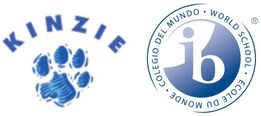Language Policy
Kinzie School Mission Statement:
Kinzie Elementary School’s rigorous curriculum and diverse environment empowers all students to become critical thinkers, lifelong learners, global citizens and visionary leaders of the future.
Kinzie School Language Philosophy:
Kinzie Elementary School recognizes that language is the foundation to all learning. Language instruction is the responsibility of all teachers. All staff are language teachers and all students are language learners. Language makes it possible for us to connect to one another, inquire and share our learning experiences.
School Language Profile:
The primary language of instruction at Kinzie School is English. Kinzie provides Transitional Bilingual Education (TBE) and Transitional Program of Instruction (TPI) programs for students, English Language Learners, whose home/native language is not English. For students in the TBE program the ratio of native language, Spanish, instruction is dependent on their English Language Proficiency level. Kinzie School is home to a Deaf/Hard of Hearing Cluster Program. This program uses Total Communication, sign language in conjunction with English, for instruction. Furthermore, instruction in Spanish is provided to students as a World Language class.
School Language Practices:
Kinzie School values the importance of language education. Language instruction encompasses the domains of listening, speaking, reading and writing in English as well as other languages. Each grade level team offers an English as a Second Language (ESL) teacher to provide instruction to English Language Learners. A number of bilingual certified teachers are in classrooms to offer native language instruction to English Language Learners. In kindergarten through second grade the English Language Learners are instructed and/or supported in all content areas by a bilingual/ESL teacher.
In addition to instruction to the English Language Learners, students also receive instruction in the Spanish language through a World Language class. In this class the students learn language, culture, customs and traditions, as well as knowledge of students’ home countries. In addition, students gain knowledge of other cultures, traditions and histories through all classes, specifically Individuals and Societies class and Language and Literature.
In addition to instruction to the English Language Learners, students also receive instruction in the Spanish language through a World Language class. In this class the students learn language, culture, customs and traditions, as well as knowledge of students’ home countries. In addition, students gain knowledge of other cultures, traditions and histories through all classes, specifically Individuals and Societies class and Language and Literature.
Supports:
- English Language Learners (ELLs)
- Students are identified as English Language Learners through placement tests - MODEL and WAP-T. Students receive instruction through the Transitional Bilingual Education (TBE) and the Transitional Program of Instruction (TPI) models. In the TBE model, students receive instruction in their native language and English as a Second Language. In the TPI model, students receive instruction in English as a Second Language. Students receiving 3.5 or below on the placement exam or annual English language proficiency exam, ACCESS, have the choice to use course texts in Spanish. Students scoring above 3.5 receive ESL support from classroom and/or resource teachers. The ESL teachers support the students in English vocabulary, grammar and communication in Language and Literature classes and other classes.
- Services
- Multi-Tiered Systems of Support (MTSS) - A framework for providing students with additional academic support. Student progress is monitored in the classroom as well as through a specialized MTSS team.
- Special Education - Students receive support in the classroom according to their individual needs as stated on their IEPs and 504 plans.
- Seal of Biliteracy Enrichment Class - Select students were offered support in preparation for the Seal of Biliteracy Exam
- Parent Supports
- Parent Advisory Committee (PAC) - Parent/Child and Parent/Community support system
- Bilingual Advisory Committee (BAC) - Every school implementing a state mandated Transitional Bilingual Education (TBE) Program is required to establish a Bilingual Advisory Committee (BAC) according to the Chicago School Reform Act. It is also recommended that schools implementing a Transitional Program of Instruction (TPI) encourage parents to participate in the BAC meetings since issues regarding the education of all English Learners (ELs) are discussed and decided at these meetings. It is critical that all parents of ELs are informed of the challenges and opportunities of educating their children in TBE or TPI instructional contexts at their particular school. The goal of the BAC is to help parents of ELs develop leadership skills for effective participation in schools and to advocate for the academic, social, and cultural development of all ELs. (As defined by the Office of Language and Cultural Education, Bilingual Advisory Committee Handbook)
- Translation - Communications are translated for families and translators are provided for parent-teacher conferences.
- Library
- Provides fiction and nonfiction texts in English and students’ native languages
- Contains books celebrating ethnic diversity, cultures, and traditions
- Access to assistive technology
Communication of Policy:
The Kinzie community believes that all of its stakeholders should take an active role in shaping and implementing school policies. All policies will be reviewed and updated at the beginning of each school year. The policy will be made available to all stakeholders in multiple languages as well as on the school website. https://kinzie.cps.edu
Review Process
The policy was originally drafted April, 2018.
Kinzie stakeholders will review this policy annually.
Kinzie stakeholders will review this policy annually.
